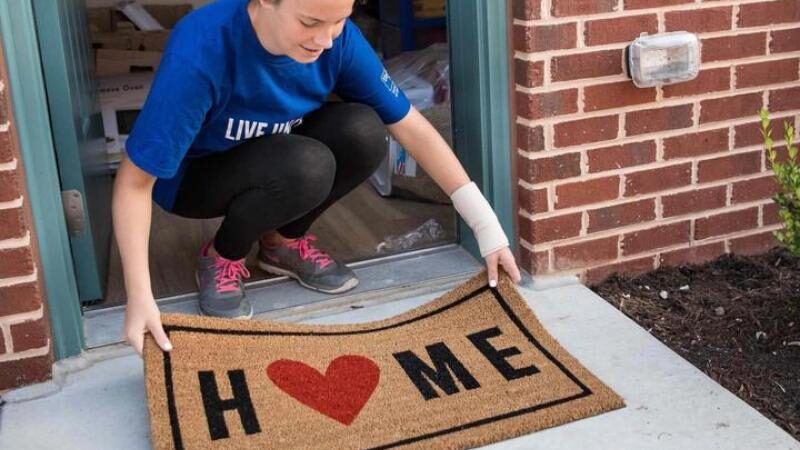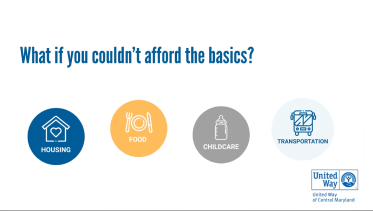About ALICE
Life is full of unforeseen expenses. But for 1 in 3 working Maryland households, even a modest bill or price increase could push them into financial crisis.
Every day, they’re forced to make difficult, often perilous decisions: Do I pay the rent or buy groceries? Put my daughter in childcare, or trust her with a neighbor?
Check out the latest Maryland United Way ALICE (Asset Limited, Income Constrained, Employed) Report to see just how hard it is to get by and cover the basics.
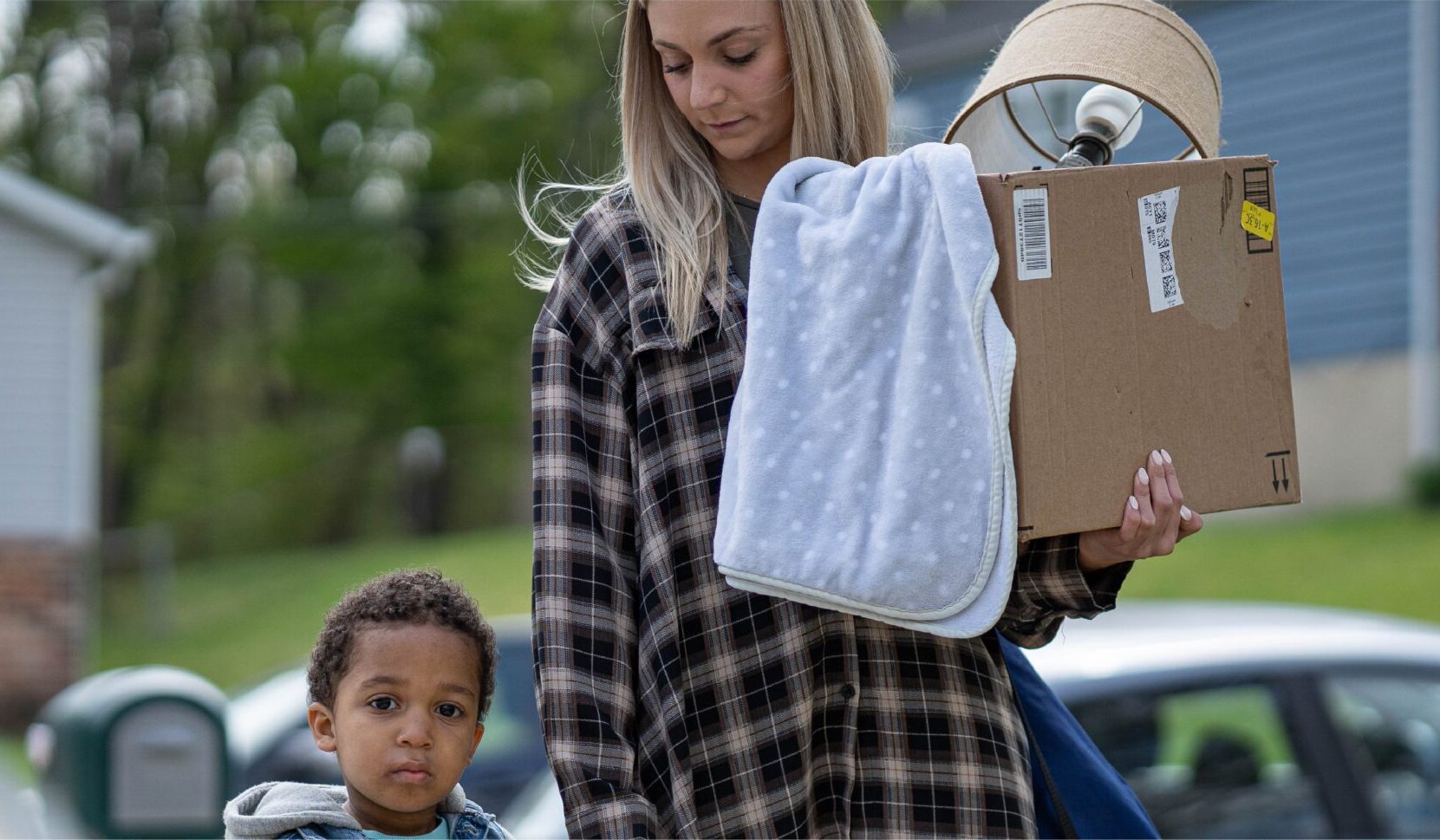
The report reveals that 1 in 3 Maryland households struggle to pay for the basics, living as ALICE (Asset Limited, Income Constrained, Employed).
Every day, people whose earnings can’t keep pace with the cost of living are forced to make impossible decisions. They often earn too much to qualify for government benefits, but not enough to support a “survival budget” for life’s essentials, like food, housing, healthcare, childcare, and transportation.
ALICE workers are cashiers, fast food workers and restaurant staff, drivers and warehouse workers, health aides, office staff, and more-many in low-wage jobs, with little or no savings and only one emergency away from poverty.
As benefits are peeled back and inflation persists, signs of greater economic stress are on the horizon for ALICE households.
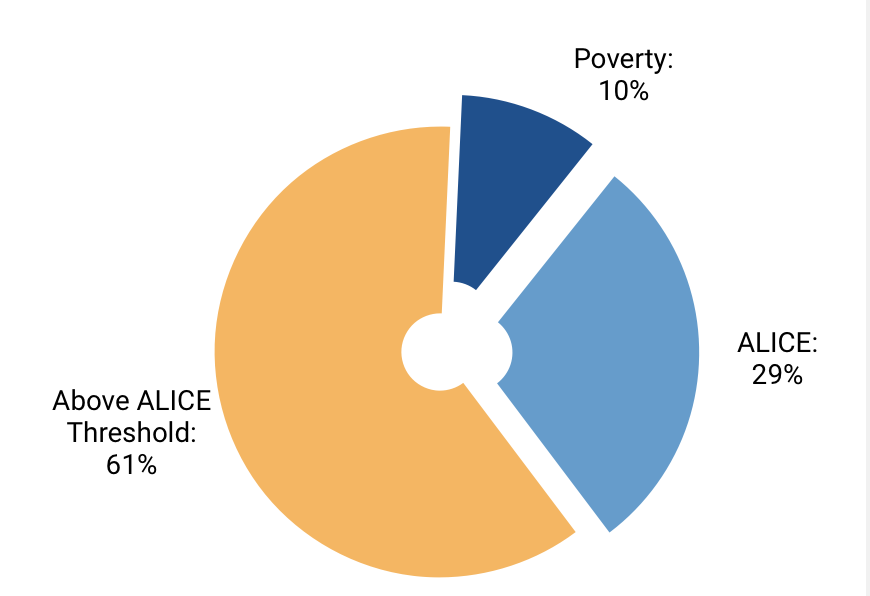
39% of Maryland households can’t afford the state’s high cost of living. The 2025 report provides a staggering look at the extent of financial hardship in Maryland.
Explore these useful interactive tools:
- Compare household expenses and income based on where you live and family size with the ALICE Budget and Income Status Tool.
- Use the Wage Tool to see how different earning levels impact an ALICE household’s ability to afford a bare-bones budget.
- The ALICE Essentials Index measures changes over time in the costs of the essentials that matter most to ALICE and poverty-level households: housing, food, health care, childcare, transportation, and basic technology.
- The Legislative District Tool helps policymakers and community stakeholders better understand how many households are actually struggling in their district.
- See past reports, Central Maryland county snapshots, and focused ALICE Reports on children, people with disabilities, and veterans here.

What would you do?
Step into the shoes of a struggling family with United Way’s online 30|30 Experience. Navigate real-life scenarios, make tough decisions, and learn what daily life is like for low-wage earners.
Policy change is a powerful way to break down longstanding barriers and strengthen lives, communities, and our economy. It is crucial for voters to be aware of ALICE issues and consider the needs of ALICE households-which affect us all-at the ballot box.
Want an easy way to stay informed on the issues and directly contact your elected officials? Make your voice heard and take action today!
Join our advocacy platform, which educates and mobilizes supporters and does the work of reaching out to policy makers for you!
United is the way to improve the financial security and well-being of Maryland households struggling to make ends meet.

Employment
Improved pay and job prospects were helpful but insufficient to counter years of financial strain from rising basic costs. Essential goods outpaced wages for over a decade, further burdening ALICE households. In Maryland, 10 of the 20 most common jobs pay under $20/hour. ALICE workers primarily hold roles like general and operations managers, retail salespersons, cashiers, driver/sales workers, truck drivers, and fast food and counter workers, but they can also hold higher-paying jobs and still can’t cover the cost of necessities or unplanned expenses for themselves or their families.
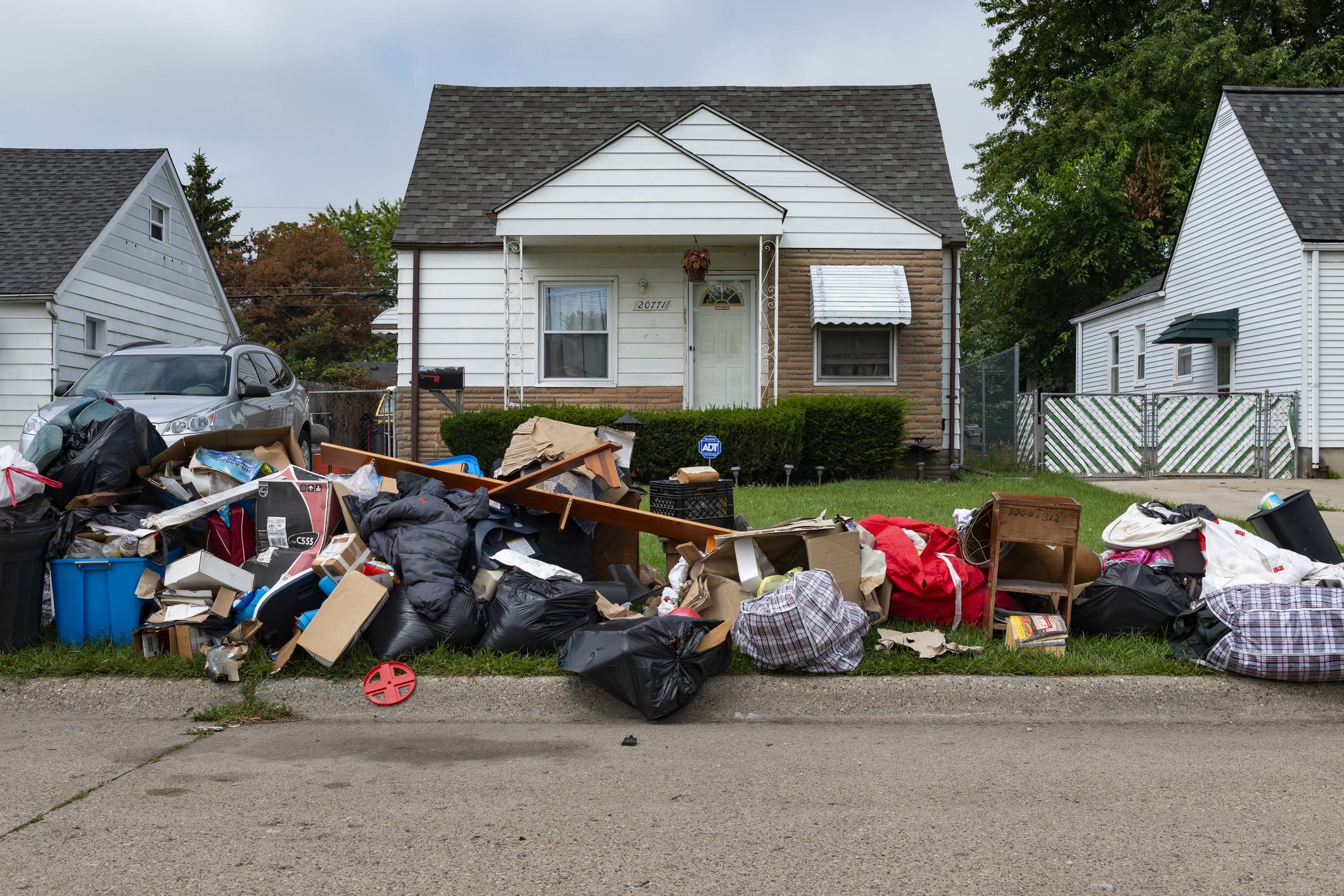
Realities of Inequity
This series, featuring various local leaders, focuses on barriers to economic, health, and racial equity revealed in our ALICE Report. Watch the sessions here.
ALICE Report Sponsors
The Maryland ALICE Report was sponsored by:

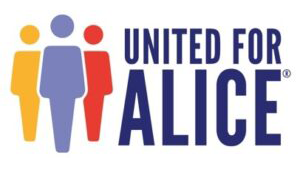
United For ALICE
United For ALICE fosters innovation, research, and action nationwide to support ALICE (Asset Limited, Income Constrained, Employed) individuals and communities. By developing ALICE measurements, we offer an unbiased view of financial hardship. With this data, we collaborate on solutions for financial stability at all levels. We’re a grassroots movement that has grown to include partners in more than half of the U.S. states–and counting using a unified methodology to document financial needs.
